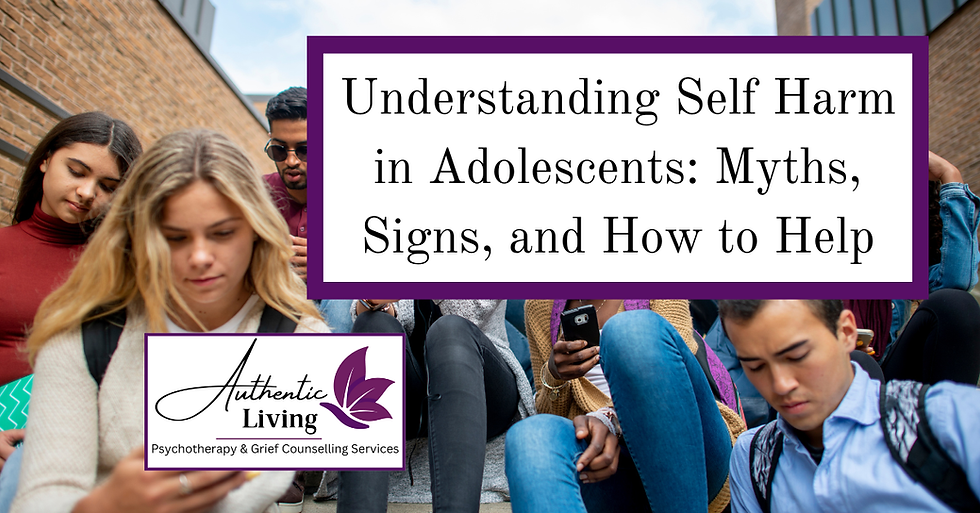What Does Anxiety Feel Like?
- Aug 3, 2025
- 3 min read
Anxiety can manifest in a variety of ways, affecting both the mind and body. It’s a natural response to stress, but when it becomes overwhelming or persistent, it can interfere with daily activities.
Common feelings associated with anxiety include:
Physical Symptoms: Rapid heartbeat, sweating, trembling, shortness of breath, dizziness, and muscle tension.
Emotional Symptoms: Persistent worry, fear, or unease; feeling overwhelmed or out of control; irritability and restlessness.
Cognitive Symptoms: Difficulty concentrating, racing thoughts, excessive worrying about future events or past experiences.
Behavioral Symptoms: Avoiding situations that trigger anxiety, changes in eating or sleeping patterns, social withdrawal.

How Can People Help Themselves?
Managing anxiety involves adopting strategies that can reduce symptoms and improve overall well-being. Here are some self-help tips:
Practice Relaxation Techniques: Techniques such as deep breathing, progressive muscle relaxation, and mindfulness meditation can help calm your mind and body.
Stay Physically Active: Regular exercise can reduce anxiety by releasing endorphins and improving your mood.
Maintain a Healthy Lifestyle: Eating a balanced diet, getting adequate sleep, and avoiding excessive caffeine and alcohol can positively impact your anxiety levels.
Establish a Routine: Creating a structured daily routine can provide a sense of normalcy and reduce uncertainty.
Stay Connected: Talking to friends and family about your feelings can provide emotional support and reduce feelings of isolation.
Limit Screen Time: Reducing exposure to news and social media can help decrease anxiety related to information overload.
How Can Therapy Help?
Professional therapy can be incredibly beneficial for those struggling with anxiety. At Authentic Living London, our therapists offer a supportive environment to help you understand and manage your anxiety. Here’s how therapy can help:
Identify Triggers: Therapy can help you identify the specific thoughts, situations, or events that trigger your anxiety.
Develop Coping Strategies: Therapists can teach you practical coping mechanisms to manage anxiety symptoms effectively.
Improve Emotional Regulation: Therapy can help you learn how to manage and regulate your emotions, reducing the intensity and frequency of anxiety episodes.
Build Resilience: Working with a therapist can help you develop resilience, making it easier to cope with stress and anxiety in the future.
Provide Support: A therapist offers a non-judgmental space where you can express your feelings and work through your anxiety with professional guidance.
How Can Others Support People with Anxiety?
Supporting someone with anxiety requires patience, understanding, and empathy. Here are some ways you can help:
Listen Without Judgment: Allow your loved one to express their feelings without interrupting or offering unsolicited advice. Sometimes, just being there to listen can be incredibly comforting.
Offer Reassurance: Let them know that their feelings are valid and that it’s okay to feel anxious. Reassure them that you are there to support them.
Encourage Professional Help: Suggest seeking professional therapy if their anxiety is significantly impacting their life. Offer to help them find a therapist or accompany them to appointments.
Learn About Anxiety: Educate yourself about anxiety to better understand what your loved one is going through and how you can provide effective support.
Promote Healthy Habits: Encourage activities that can reduce anxiety, such as exercise, relaxation techniques, and maintaining a healthy lifestyle.
Be Patient: Understand that managing anxiety is a process that takes time. Be patient and avoid pressuring them to “snap out of it.”
If you are struggling with anxiety, we are here to help! We have a team of therapists who are trained to help with anxiety. Your story matters. Your struggle matters. You matter. Call/text 226-224-0301 to book a free 15 minute phone/video consultation today.










Comments